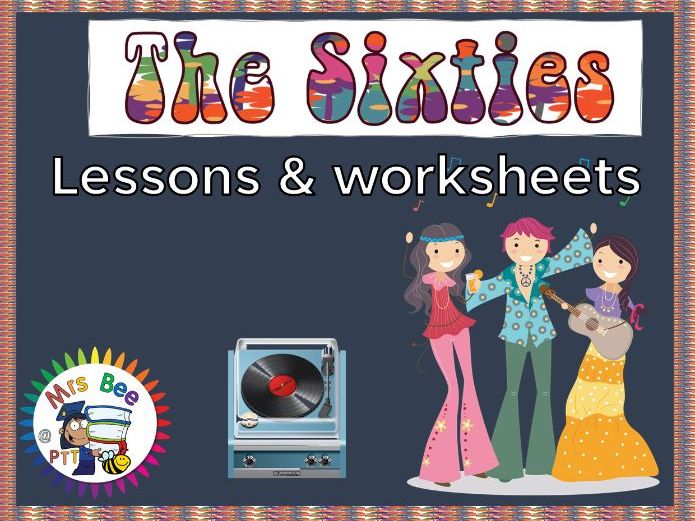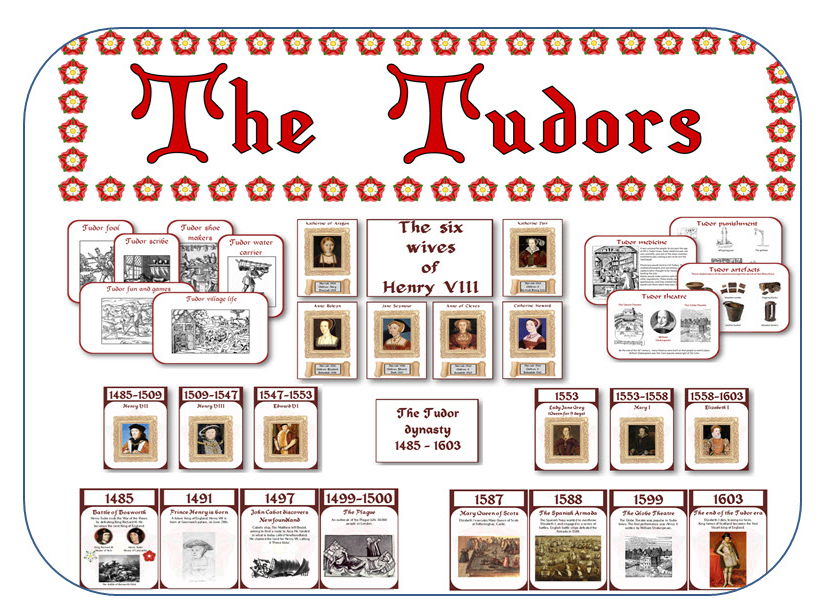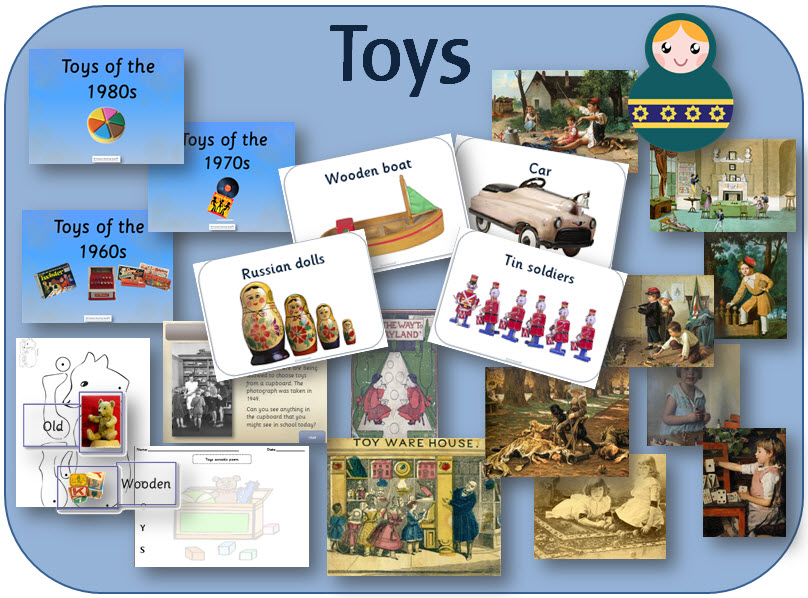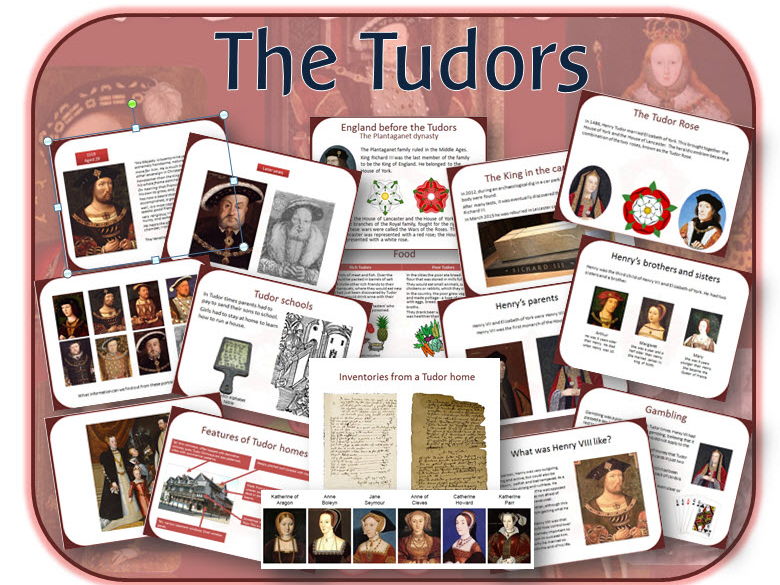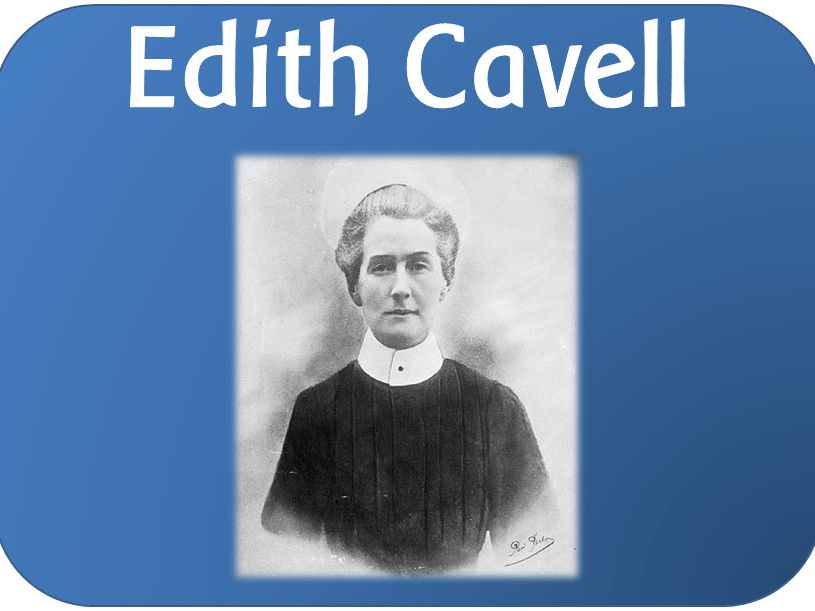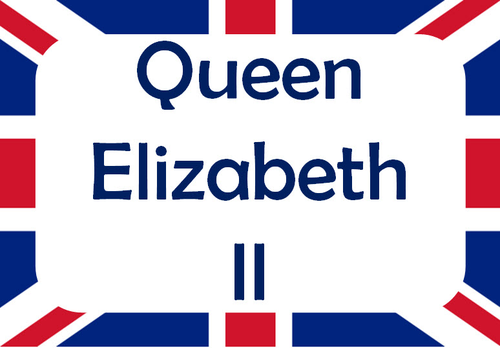
404Uploads
1071k+Views
683k+Downloads
History

The history of flying & the first aeroplane flight PowerPoint lessons and worksheets
A set of PowerPoint presentations plus a medium term plan looking at the history of flight. The PowerPoints are:
The history of flight: Describes the development of flight from the first kites made by the Chinese around 200 BC to the modern types of aircraft today. Includes kites, wings, ornithopter, hot air balloon, hydrogen balloon, airships, helicopters, autogyro, biplanes and monoplanes, flying boat, the jet engine, space shuttles and Concorde. Also looks briefly at the work of: the Montgolfier brothers, George Cayley, Otto Lilienthall, Samuel Pierpont Langley, the Wright brothers and Frank Whittle.
The first balloon flight ~ The Montgolfier brothers: A story of their lives, and how they designed the Montgolfier balloon.
The first aeroplane flight ~ The Wright brothers: A story of their lives and how they designed the first heavier than air powered aircraft.
How to make a paper plane (x2): Step by step instructions on how to make a paper plane, with illustrations.
Printable resources
Maps of the world / Europe/ UK/ North and South America/ South Asia/ Australia/ China/ Russian Federation / Mexico/ Africa
Worksheets(15):
Topic cover
9x sheets with images of different types of inventions for flying
The Montgolfier brothers writing sheets
The Wright brothers writing sheets
Design a hot air balloon x 3
Airship picture
Pictures of the Wright brothers and their planes
3 x A4 titles The history of flight / The Wright brothers / The Montgolfier brothers
A-Z lettering
Large ‘Flight’ letters
Planning document

The Sixties lessons and worksheets KS2 1960s history topic resources
A set of PowerPoint lessons to teach different aspects of life in the sixties, plus headings and worksheets. It is suitable for teaching children aged 8-11.
It includes:
INTRODUCTION TO THE 1960S - A short introduction explaining what a decade is and how many decades ago the Sixties were. Poses some questions for the children to think about, with a follow up activity.
SIXTIES DAILY LIFE - How people in the 1960s had ‘never had it so good’; Money - Explanation of pounds, shillings and pence with illustrations of the coins and notes; Shopping - how supermarkets started expanding, Green shield stamps, and food eaten in the Sixties; Transport - Expansion of motorways, popular cars, and air transport; Technology - Police call boxes, public telephones, telephones in the home, computers, computer games, the forerunner to the Internet, lasers, calculators. (25 slides)
SIXTIES SCHOOL LIFE - What it was like going to school in the 1960s. (10 slides)
SIXTIES KEY EVENTS - A timeline of events from around the world from 1960 to 1969, with three highlighted events in each year. (11 slides)
SIXTIES HOMES - New housing developments, tower blocks and older houses that needed modernising; How the washing and cleaning was done; Home fashions - kitchens, lounges, ornaments, and furniture; Television, and how it progressed over the decade. (14 slides)
SIXTIES FAMOUS PEOPLE - Neil Armstrong, Yuri Gagarin, Alfred Hitchcock, John F Kennedy, Jacqueline Kennedy, Muhammad Ali/ Cassius Clay, Mary Quant, Francis Chichester, Andy Warhol, and Twiggy. There is a page for each person, with a short description of what they are famous for. (12 slides)
SIXTIES FASHION - How fashioned changed from the beginning to the end of the decade and how it was influenced by music. (17 slides)
SIXTIES MUSIC - How people listened to music in the Sixties - records and record players; radios and Pirate radio stations, introduction of tape players, jukeboxes; Sixties music fans - Mods and Rockers, Skinheads and Hippies; Sixties bands and singers - The Beatles, Elvis Presley, Chubby Checker, Cliff Richard, The Beach Boys, The Rolling Stones, The Kinks, The Monkees, Jimi Hendrix, and the Woodstock Festival. There is a picture and description of each band / singer, and a their most popular hit of the Sixties. (21 slides)
SIXTIES TOYS - Pictures of popular Sixties toys, with short descriptions. (9 slides)
Plus a set of 11 worksheets with follow-up activities.
Some of the PowerPoints contain links to relevant videos though SafeShare T.v., which filters unwanted adverts from the clip. You may need to check that you can access this in school.
The links were checked before uploading, but if they stop working please feel free to contact me or email me: primaryteachingtools@gmail.com and I will update them.
This pack is an updated version of my previous Sixties pack.

The Stone Age, Bronze Age and Iron Age display pack: Posters headings timelines banners headings
STONE AGE DISPLAY:
A4 title
A-Z lettering in a stone background
The Stone Age banner
Stone Age timeline
Stone Age artefacts
Stone Age border for display boards
BRONZE AGE DISPLAY:
A4 title
A-Z lettering in a bronze background
The Bronze Age banner
Bronze Age timeline
Bronze Age artefacts
Bronze Age border for display boards
IRON AGE DISPLAY:
A4 title
A-Z lettering in a metallic iron background
The Iron Age banner
Iron Age artefacts
Iron Age border for display boards

History of Trains powerpoint
The PowerPoint is 55 pages long. It covers the history of trains from the first vehicle to be pulled on rails over 200 years ago; steam trains; the locomotive; the Rocket; diesel trains, through to the modern electric trains of today.
It is written in the style of a non-fiction book, with a contents page, index and glossary.
It would be suitable for upper KS1 or lower KS2 and can be used in a history topic or as a non-fiction book in English.

The Tudors display pack
A set of Tudor display resources to print - posters, titles, banners, and borders.
Headings
Henry VIII Banner: Prints onto 2 A4 sheets, bordered with pictures of his wives.
The Tudors title: 3 versions - black lettering, red lettering, and embedded Tudor Rose lettering
The Tudors A-Z lettering: 2 versions, one with embedded with the Tudor Rose, the other with red lettering.
The Tudors Banner: 2 versions, one with text embedded with the Tudor Rose, the other with red lettering
'The Tudors' lettering to cut out: large lettering, fills 3 A4 pages.
Borders - for display boards
Henry VIII's wives border
Tudor rose border
Posters
The Tudors posters: 12 A4 posters:-
Tudor punishment
Tudor clothes for women
Tudor clothes for men
Tudor world map
Tudor British Isles map
Tudor surgery
Tudor medicine
Tudor houses
Tudor theatre
Tudor explorers (x2)
Tudor artefacts
Tudor woodcuts: 17 Tudor images made for illustrations in printed materials:-
Tudor house building
Tudor fish market
Tudor geographer
Tudor coin makers
Tudor warfare
Tudor fun and games
Tudor shepherds
Tudor hunting lessons
Tudor village life
Tudor beggar
Tudor fool
Tudor printers
Tudor water carrier
Tudor shoe makers
Tudor school punishment
Tudor scribe
Tudor engravers
The Tudor Monarchs: Six posters, each containing a Tudor monarch, with a picture and the dates they reigned, plus an A4 title 'The Tudor dynasty 1485 - 1603'.
The six wives of Henry VIII: Six posters each containing a wife, with the dates they were married, how many children they had, and when and how Henry got rid of them. Also contains a title.
The Tudors timeline: 24 pages of the main events that occurred between 1485 and 1603. The dates are displayed along the top so they can be placed along the wall in a timeline. Each event contains pictures and descriptions.
Tudor coat of arms: The coat of arms of Henry VII, Henry VIII, Mary I, and Elizabeth I.
The Tudor Rose: a large Tudor Rose to print
Activities
The Tudors A4 writing border
Tudor rose - black and white

World War II / WW II & VE Day display pack
A set of headings, lettering, banners, posters and images for a WW2 / VE Day display:
WW II HEADING: Prints onto 1 A4 sheet, with the title 'World War II’
WW II BANNER X 2: In 2 sizes, one prints onto 3 A4 sheets, the other 4.
WW II A-Z LETTERING: Lower and upper case letters, plus numbers and punctuation to print and cut out.
WW II IN PHOTOGRAPHS: 15 titled photographs, showing images taken during the war -
The Women’s Volunteer Defence Corps
Rescue workers
Bombing at the library
Air raid warden
Ration book
Refreshments for the soldiers
Dunkirk
The Queen visits an Anderson shelter
Aftermath of a Blitz
Homeless
The Women’s land army
Bombings in Merseyside
Hawker Hurricane
Evacuees
Destroyed houses
WW II POSTERS: 10 A4 sheets containing photographs and explanations of different aspects of WW II -
WW II begins - Outlines the start of the war, with pictures of Neville Chamberlain, Adolph Hitler, and Winston Churchill
The Blitz - Explains what the Blitz was.
Blackouts - Curtains, and reasons why
Air raid shelters
Anderson shelters
Gas masks
Evacuation
Rationing
Participants of WW II
VE day
WW II INSTRUCTIONAL IMAGES: A collection of images made during the war to educate people about gas masks, enemy aircraft, air raid precautions, and fire precautions. (4 pages, with 3 or 4 images on each)
VE Day heading
VE day lettering
Union flag border
Small and large union flags

The Titanic - powerpoint lessons, worksheets and activities suitable for KS1 KS2
This is a set of 6 PowerPoint lessons and printable worksheets; suitable for teaching children aged 7-11
PowerPoint lessons:
TITANIC INTRODUCTION
A page for recording what the children already know, and a brief outline of the 1900’s, the Titanic, and her maiden journey.
BUILDING THE TITANIC
Who built and designed the Titanic and where it was built.
ON BOARD THE TITANIC
A 28 page PowerPoint, looking at who was on board - the crew, the different classes of passengers, and what each class was like, and what the Titanic was like inside.
TITANIC’S MAIDEN VOYAGE
A 30 page PowerPoint, telling the story of the Titanic’s fateful maiden voyage. It includes an explanation of how icebergs travel to the Atlantic Ocean, and looks at some survivors and what happened to the victims of the disaster.
TIMELINE OF THE VOYAGE
A detailed step by step report of the events of the Titanic’s maiden voyage.
FINDING THE TITANIC
Looks at how the Titanic was rediscovered in 1985, and what has happened to her since. Includes pictures and artefacts from the wreck.
PDF FILES :
BLANK MAP:
For the children to map out the route the Titanic took
WHAT I ALREADY KNOW ABOUT THE TITANIC:
sheet for the children to record what they already know and what they would like to learn
WRITING SHEET:
For creative writing
NEWSPAPER REPORT:
For report writing
SEQUENCING:
Images for sequencing the story

The Viking & Anglo-Saxon struggle for the Kingdom of England:powerpoints, worksheets, activities
A series of PowerPoint lessons, worksheets and activities to teach how the Vikings and Anglo-Saxons fought for the Kingdom of England up to the time of Edward the Confessor.
POWERPOINTS:
1) ANGLO-SAXON ENGLAND AD 780
Life in in England before the main arrival of the Vikings towards the end of the 8th century / How the Anglo-Saxons lived / How the towns were structured / The importance of the monks.
2) VIKING RAIDS AND INVASIONS AD 797 - 783
Timeline / Introduces the Anglo-Saxon Chronicle as evidence / The first known attack on Britain by the Vikings / The second attack on Lindisfarne/Holy Island / Viking longships / Viking warriors and equipment / Beginning of Viking settlement in England
3) THE VIKINGS SETTLE & ALFRED FIGHTS BACK AD 866 - 927
Viking invasions and settlement / The Heathen Army / York / King Alfred / Guthrum / Danelaw / Alfred the Great and his fight against the Vikings / Edward the Elder / Athelstan / The Battle of Brunanburh
4) VIKING DAILY LIFE
Family life / Clothing / Homes / Daily life / Viking law / Music / Food / Sport / Arts and crafts / Viking beliefs, Asgard and gods, days of the week named after Viking gods / Viking burials
5) ATHELSTAN, ETHELRED AND ANGLO-SAXON LAWS AD 927 - AD 991
Athelstan and government of England / The Witan / Hundreds / Moots / Reeves / Laws / / Punishments / Wergild / Ethelread the Unready
6) THE RETURN AND END OF THE VIKINGS AD 991 - 1066
Further Viking raids / St. Brice's Day massacre / Sweyn Forkbeard / King Canute / Edward the Confessor / Harold Godwinson / William the Conqueror / The Battle of Hastings / The end of the Viking era
7) LOOKING AT EVIDENCE
Place names / Viking sagas / Anglo-Saxon Chronicles / Surnames and DNA / The Bayeux Tapestry / Archaeology / Treasure discoveries / Runestones
RESOURCES TO PRINT (pdf): Most sheets are open-ended worksheets, with an image and lines for research, reports etc.
What I already know about the Anglo-Saxons and Vikings
What I would like to find out about the Vikings
The arrival of the Vikings
The Vikings attack the monasteries
Danelaw
King Alfred the Great
The Heathen Army
The Treaty of Wedmore
Viking daily life
Anglo-Saxon laws
Athelstan
Ethelred the Unready
Battle of Hastings
Battle of Stanford Bridge
Death of King Harold
Edward the Confessor
King Harold
The Vikings return
Bayeux Tapestry
Viking place names
Viking runes
Topic covers x 3
Viking ships
Viking warriors
Writing border - Edward the Confessor
Writing border - Viking ship
Plus a copy of the Anglo-Saxon Chronicle (in Word)
Vikings & Anglo-Saxons medium term adaptable plan, with web links.

Toys KS1 topic resources - powerpoints, activity and display pack
A set of powerpoints showing photographs of the most popular toys of the pre-50s, 50s, 60s, 70s, 80s, 90s and modern toys; an introduction to the history of toys - going back to dolls in Ancient Greece to computers today; a look at portraits of children from the past playing with toys; a sorting toy activity into old and new, and an old poem about the wonders of a toy shop.
There are also 4 maths powerpoints looking at addition and subtraction in the toy shop, with cards to print for games.
The activities include:
An acrostic poem template
Animal cut-out templates to join together to make a moving toy
Colouring sheets
Pictures of new/old teddy
Puppets for role play
Russian doll set to print and laminate for size ordering
6 x Santa lists to use around Christmas
A thaumatrope template with instructions
3 x cover templates for a topic book
Toy sorting cards - to sort into different materials/ properties.
Toys from the past questionnaire to take home to fill in with parents.
A copy of an old book 'What shall we do next' from 1907 full of games and activities that children played
The Wonderful Toymaker fairy tale to read
An outline planning document with cross curricular links that can be adapted.
DISPLAY
Old toys display - photographs
Children's portraits playing with toys
Toys banner
Toys heading
Toys in the past heading
Toys timeline

Transport topic - George Stephenson and the history of trains - powerpoints and activities
Two powerpoints looking at how and why trains developed over time, and the Father of the Railways, George Stephenson, plus 3 worksheets.
George Stephenson and locomotives: Looks at James Watt and his steam engine design; Richard Trevithick and his steam engine improvements, and the life of George Stephenson, and how he became known as the 'Father of the Railways'. Tells the story of the first steam locomotives; the Rainhill Trials; the Liverpool and Manchester Railway; and new steam locomotive designs up to 1941. Also briefly and simply explains how steam engines work.
Trains now and then: Shows different parts of a steam locomotive, and looks at pictures of different locomotives, and how they developed from George Stephenson's Rocket, to the modern bullet trains of today.
Steam train worksheets: 3 different worksheets, showing a picture of a steam train to label and caption.
The Rocket worksheet: To compare modern trains with old steam locomotives.
Steam train template: An outline of a steam train, to use for colouring, collage, paint etc.

KS2 history topic: The Roman Empire & its impact on Britain display pack
A set of resources in pdf format to print and display. The pack consists of:
4 Different A4 titles: The Roman Empire and its impact on Britain / The Romans / The Roman invasion of Britain / The Roman Empire
A-Z lettering: with blue 'Roman temple' background
Banner x 2: With lettering 'The Roman Empire and its impact on Britain' and 'The Roman Empire'
Border: Strips of border decorated with a Roman soldier for display borders,plus corners with 'SPQR'.
Famous Romans posters (x 4): A heading plus one A4 sheet for each of the following; Julius Caesar, Emperor Claudius, Emperor Hadrian and Romulus (& Remus), with information about each person.
Maps of Roman Britain posters (x 4): A heading, plus an old 4th century map of what Britain was thought to be like; A map of Iron Age tribes in Britain, a map of mining in Roman Britain and a map of Roman Britain in around AD 150
Roman artefacts posters (x 10; 2 on each A4 page): Heading, plus images of a Roman jug, an oil lamp, samian ware, aurus of Nero, a fresco, glassware, a mosaic, a military diploma, writing implements and copper and lead ingots.
Roman Emperor posters (x 5): A4 heading, plus images of the first five Roman Emperors; Augustus, Tiberius, Caligula, Nero.Clausius
Roman god posters (x 8): A4 heading plus the gods / goddesses Saturn, Jupiter, Juno, Janus, Neptune, Minerva, Mars and Vulcan.
Photo pack of Roman sites in Britain: A heading plus an A4 page for each of the following; Bath, Hadrian's Wall, Richborough Fort, Great Witcombe Roman villa, Vindolanda, Venta Silurem, Anderitum, London Wall and Viroconium. Each photograph contains a map of the UK showing the location of each site.
The Roman Army posters (x 8): Heading plus images of a legionary with his equipment and armour labelled, an aquilifer, archer, ballista, catapult, centurio, cavalry, cassis, cuirass, tunic, boot, scutum, pilum, standard and gladius.
Timeline of the Roman Empire: An A4 sheet, showing the rise and fall of the Roman Empire from 750 BC to AD 500
Vocabulary display of the Roman Empire: Contains 2 words per A4 page, with an image and definition of the following words; Senate, legionary, republic, emperor, empire, civilization, citizen, Mediterranean, barbarian, archaeologist, military, plebeian, tribe, artefact, century, hostage, BC and AD

KS2 history topic The Tudors, Henry VIII and his wives - Powerpoint lessons and activities
A set of lessons and activities looking at the Tudors and Henry VIII
POWERPOINTS
Who were the Tudors?
Explains who the Tudors were, and when they lived. It shows a timeline of British history and where this period fits in. It looks at the Plantaganet dynasty who ruled before the Tudors. the Tudor Rose, how Henry Tudor defeated Richard III at Bosworth, and how the remains of Richard III have recently been discovered.
Who was Henry VIII?
Looks at his parents, his siblings, how he became king and a brief overview of his life.
What was Henry VIII like?
A look at different portraits of Henry showing how he changed over the years with contemporary descriptions of him at different times of his life.
Henry VIII's pastimes
Descriptions of all the pastimes Henry VIII did in his spare time
The wives of Henry VIII
The story of his marriages and wives over time in chronological order and explanations of why he married six times
What did Henry VIII do for his country?
A look at what life was like in Tudor times and how Henry made changes to: religion; the monasteries; the Navy & Mary Rose; coastal defences; Government and the union of Wales and England.
The poor in Tudor times
How the poor lived in Tudor times; it explains the hierarchy of Tudor society, unemployment, workhouses, almshouses and the Poor Laws. It describes poor Tudor homes, punishments and disease amongst the poor.
The lives of rich Tudors
Explains how we know much more about the lives of rich Tudors compared to the poor. It looks at what the rich ate; what they did in their leisure time; schools; clothing; punishments; homes (including styles and rooms). It shows images of two inventories from Tudor homes with a transcription.
How different were the lives of rich and poor Tudors?
Compares different aspects of the two groups: jobs; clothes; homes; food; education and entertainment.
Edward VI
His life story
Mary Tudor
Her life story
Elizabeth I
Her life story
Tudor fun activities and facts
Tudor recipes, facts and origins of words and phrases.
WORKSHEETS/ PRINTABLE RESOURCES IN PDF
Description of Henry VIII: Description written by the Venetian Ambassador in 1519
Difference between rich and poor Tudors: For recording
Farringdon inventory
Inventory of Clement Swallow
Portraits of Henry VIII: 10 different portraits to compare how he looked over the years
Rich and Poor Tudor pictures
The House of Tudor: Pictorial family tree
Tudor family portraits: Henry VII, Elizabeth of York, Henry VIII, Mary I, Elizabeth I and Edward VI on one A4 sheet
Wadley inventory
Wives of Henry VIII: Small portraits

KS1 History: Edith Cavell Powerpoints, worksheets, activities and display pack
A set of resources to teach KS1 about Edith Cavell and how she helped soldiers in the Great War. The pack includes planning, display, interactive whiteboard lessons and class activities.
1 WHAT WAS IT LIKE WHEN EDITH WAS ALIVE
The Powerpoint sets the scene, showing what life was like when Edith was born. It looks at her birth in a chronological framework, and talks about differences between then and now.
Activities:
Now and Then pictures: to look at and discuss, or to use for display
Questions about Edith Cavell: A picture of Edith in her nurses uniform, with questions for the children to think about.
2 THE LIFE STORY OF EDITH CAVELL
The 20 page Powerpoint looks at her life in detail until the time she returns to Belgium when the war begins.
Activities:
The Cavell family Census records
Hotseating questions: Sheet for the children to fill out what kinds of questions they would have liked to have asked Edith
Pictures to tell her story: Six pictures from different times in her life; can be used for sequencing or to illustrate her life story.
The Life story of Edith Cavell Ebook: A contemporary book written about Edith. (Not suitable to give to the children to read, but useful to look at passages)
3 WHAT DID EDITH DO IN THE FIRST WORLD WAR
The 26 page Powerpoint tells the story of the last year of Edith's life. It looks at Belgium at the beginning of the war, and what Edith did for the soldiers. It looks at how and why she is remembered today.
Activities:
1914 map of Europe - accompanied by a Powerpoint showing how Edith travelled to Europe. The map can be used for identifying the countries, or for showing her route to Brussels from Norwich.
Other activities / display resources
Edith acrostic poem sheet
Picture timeline: 10 pictures of Edith from when she was a child to just before she died.
Project cover
Story planner
Word search
Writing sheets (x3)
The story of Edith worksheet
PLANNING
An adaptable plan in Word, following the Primary Curriculum 2014.

The Vikings display pack
A set of posters, lettering, title and wordmat for a Vikings display.
Viking lettering - Spells 'The Vikings', plus all upper and lower cases and numbers are included so that you can print out what you need.
The Vikings title - A4 title
Viking gods posters - Includes Odin, Freya, Frey, Thor, Tyr, Loki, Idun ,plus Valhalla - with short descriptions and pictures.
Vikings posters - 7 A4 posters on: Inside a Viking longhouse; Viking runes; Viking raids; Viking Runestones; Viking homeland; Viking ships; the Battle of Stamford Bridge - all with pictures and descriptions.
Vikings word mat - Contains Viking vocabulary with accompanying pictures; Viking gods; map of the Viking invasions, Danelaw, Yorvic, Lindisfarne and Iona; and a list of famous Vikings.

Queen Victoria and Queen Elizabeth I Powerpoint lessons
A look at the lives of Queen Victoria and Queen Elizabeth I and how they contributed to national and international achievements.
The pack also looks at life in Tudor and Victorian times, comparing aspects of life that are similar and different.
Also contains a medium term plan.

Seaside holidays (history and geography) - PowerPoint lessons and worksheets
A set of powerpoint lessons looking at the history and geography of seaside holidays, plus activities, worksheets and display resources.
POWERPOINTS
Seaside mind map: For AfL
Seaside introduction: Looks at why we go to the seaside, and how it differs from other places. It shows pictures of the countryside, town, and seaside, asking children to point out the differences.
What is the seaside like?: Looks at photographs to explore the human and physical features of coastal locations
When do we go on holiday and what do we see?: Looks at the different times of year we have school holidays, and how they coincide with religious festivals. It shows photographs of different objects and activities at modern seaside resorts.
Seaside in the past: 18 seaside photographs from 1880 until the 2000s. The children are asked to talk about what they see in each picture.
Human and physical features: A study of Blackpool, with photographs and maps, to explore the key human and physical features of the resort. The children can match features they see in photographs to a map. There are also links to British seaside tourist websites.
Looking at aerial photographs: Eight seaside locations to look for human and physical features.
How has the seaside changed?: Six pictures of seasides in the past to look at and discuss.
Pictures of seasides in the past: Six pictures of seasides in the past to look at and discuss.
The Victorian seaside: A look at how seaside resorts developed, and why people in Victorian times enjoyed going to the seaside. It looks at the different things that children did at the seaside, and compares them to what children do today.
ACTIVITIES:
Acrostic poem
Aerial photographs of different seaside locations showing pictures of coastal locations around the UK
Playing cards
Colouring pictures
My favourite environment worksheet
Packing list: Ready to go on holiday
My seaside holiday with seaside border, to write a description
Passport of places visited to itemise and describe where they have been
Passport: A blank passport to fill in
Postcard; blank to fill in
Stamps to use on the postcards
Seaside border paper for writing
Seaside holidays in the past: Compare 2 pictures to see how things were different in the past.
Seaside pictures past and present: For activities such as ordering events, describing, comparing etc
Survey – places visited: For a class survey
Topic covers x 4: With ‘The Seaside’ / ‘Seaside Holidays’ headings
Town country seaside description: To describe the different areas
UK jigsaw: England, Northern Ireland, Scotland and Wales
UK map: To mark out places visited
What can you find at the seaside: For making a list
What can you see?
Pictures of the town, seaside and countryside to describe
Plus lots more!

Transport topic - the history of cars - powerpoints
5 powerpoints looking at the history of the wheel, the horse and cart and the development of the modern day car.
Walking : The earliest form of transport. why people went on journeys.
Horse and cart: Transport before the railways and canals - looks at dirt tracks, Roman roads, Macadam roads, Stagecoaches, Omnibuses, and horse riding.
Invention and history of the car: A detailed look at the development of the car, from steam engines and the internal combustion engine, to modern cars of today. Looks at different eras in car manufacture - the Brass Era, Vintage Era, and the Classic car.
History of the Wheel: The earliest types of wheel; the spoked wheel, and other wheel inventions.

Guy Fawkes, Bonfire Night and the Gunpowder Plot - 2 powerpoints, 12 display files and 15 activities
A powerpoint story of Guy Fawkes, the Gunpowder Plot and why we celebrate Bonfire Night, with classroom activities to print and display resources.
Guy Fawkes - Two versions; one for KS1 and one for KS2. It details Guy Fawkes' life, and how he became involved with the other conspirators of the Gunpowder Plot; it explains how he was caught, and why people now celebrate Bonfire Night.
ACTIVITIES:
Bonfire night acrostic poem
Bonfire Night topic cover
Fire border for displaying work
Fireworks border
Gunpowder plot and Guy Fawkes sequencing
Gunpowder plot black and white pictures (for colouring/display)
Gunpowder plot cards
Gunpowder plot word mat
Guy Fawkes topic cover
Letter to Mounteagle
Newspaper report x 4 - Guy Fawkes, The arrest and The conspirators
Blank scroll
DISPLAY
A-Z Flame lettering
Bonfire Night banner
A4 title
Large lettering Bonfire Night
Fireworks border for displays
Confession letter of Guy Fawkes
Guy Fawkes title
Main conspirators poster
Portraits of James I and Guy Fawkes
Posters - Guy Fawkes and the Gunpowder plot
The Fireworks code
The Gunpowder plot pictures

KS2 History Bronze Age Pack - PowerPoint lessons, activities and display
A set of resources for a unit of work covering the Bronze Age in Britain, looking at the Amesbury Archer, Must Farm and Stonehenge amongst other things.
POWERPOINT (26 PAGES): Description of different aspects of Bronze Age life including
• Sources of information
• Discovery of copper and bronze
• Britain in the Bronze Age
• Religion
• Henges
• Daily life
BRONZE AGE ACTIVITIES: (for recording research)
• Write a report about the Amesbury Archer
• Write a report about Must Farm
• Bronze Age ways of living
• Bronze Age travel
• Bronze Age technology
• Bronze Age religion
• Topic covers (x2) For topic books
• Bronze Age writing border sheets (x2; lined and unlined)
BRONZE AGE DISPLAY:
• A4 title
• A-Z lettering in a bronze background
• The Bronze Age banner
• Bronze Age timeline
• Bronze Age artefacts
• Bronze Age border for display boards

Queen Elizabeth II and the Royal family
A set of resources looking at the royal family and the young Queen Elizabeth II.


